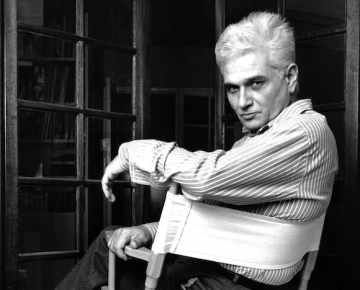 Julian Baggini makes the case in Prospect:
Julian Baggini makes the case in Prospect:
In May 1992, academics at the University of Cambridge reacted with outrage to a proposed honorary degree from their venerable institution to Jacques Derrida. A letter to the Times from 14 international philosophers followed, protesting that “M Derrida’s work does not meet accepted standards of clarity and rigour.”
Depending on your viewpoint, the incident marked the zenith or nadir of Anglo-American analytic philosophy’s resistance to what it saw as the obfuscation and sophistry of its continental European cousin. To them Derrida was a peddler of “tricks and gimmicks,” a cheap entertainer whose stock in trade was “elaborate jokes and puns.”
The irony is that the protests showed a shocking lack of rigour themselves. As Peter Salmon points out in his brilliant biography An Event, Perhaps, Derrida had never used the puerile pun “logical phallusies” that the letter writers attributed to him. This was remarkably sloppy since “it is not as though neologisms ripe for their sort of mockery are hard to find.” Salmon concludes that “none of them had taken the time to read any of Derrida’s work.”
It would have been understandable if some had tried but quickly given up. One of Derrida’s examiners at his prestigious high school, the Lycée Louis-le-Grand, wrote of his work: “The answers are brilliant in the very same way that they are obscure.” His work as an undergraduate was no easier to decipher. Louis Althusser said that he could not grade his dissertation because “it’s too difficult, too obscure.” Michel Foucault could do little better, remarking: “Well, it’s either an F or an A+.”
The Derrida portrayed by Salmon would have shared these doubts. His “nagging fear that those who saw him as a charlatan were right never left him.”
More here.
